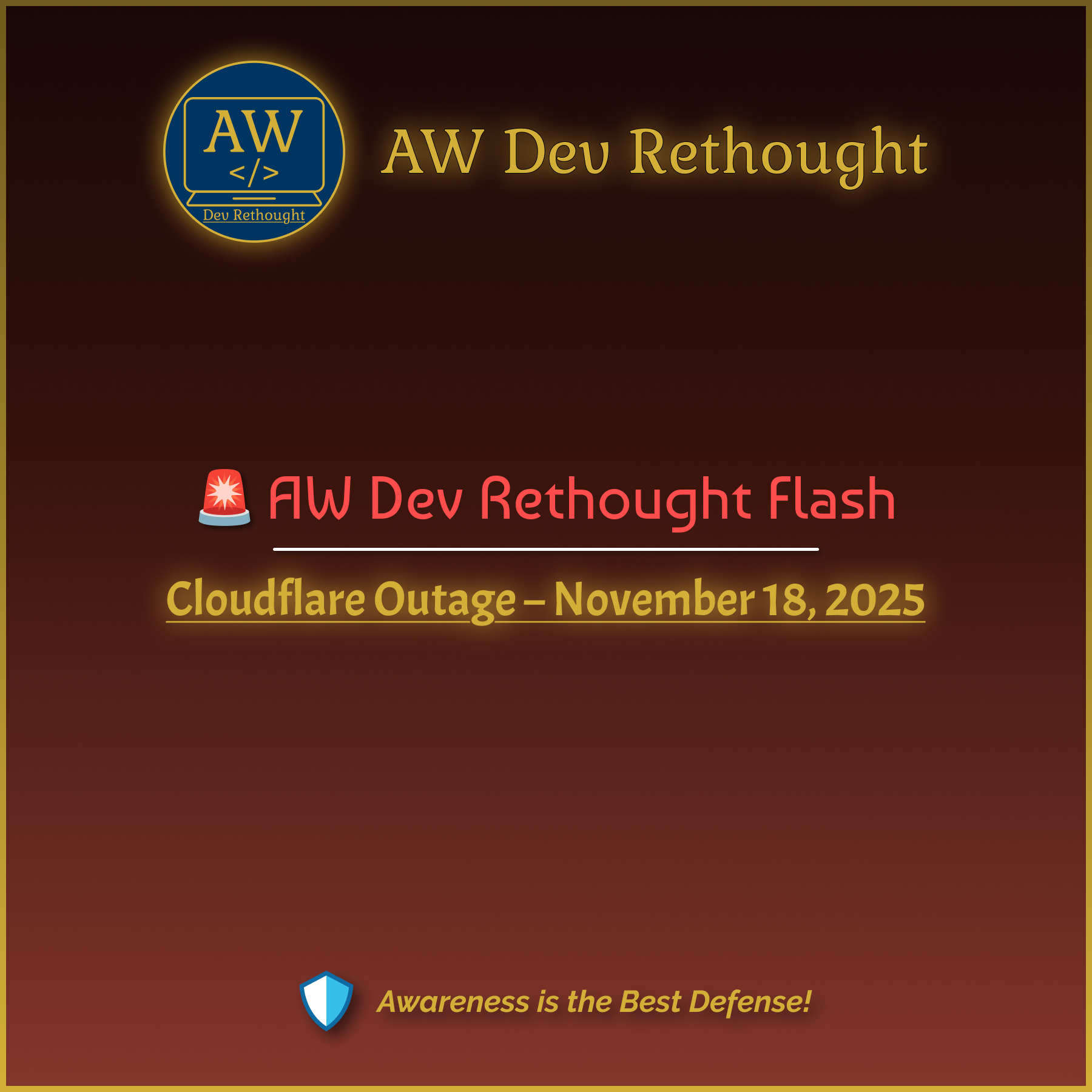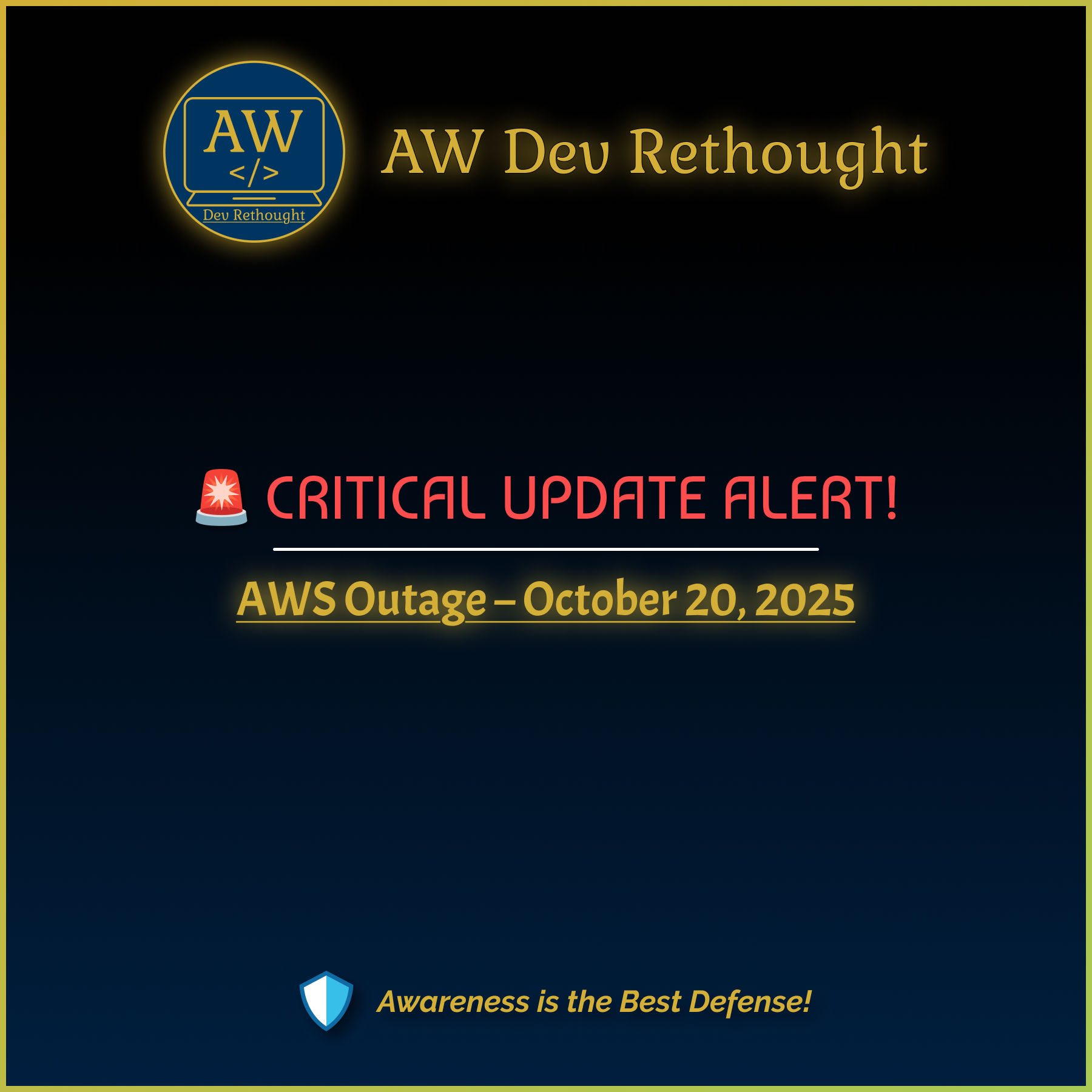AW Dev Rethought Flash: Major npm Supply-Chain Attack on September 8, 2025
On September 8, 2025, the npm ecosystem suffered one of its most severe supply-chain breaches to date. An attacker compromised the account of a prominent maintainer and pushed malware into highly popular packages like chalk, debug, ansi-styles, and others. In total, around 18 widely used libraries—together accounting for more than 2 billion weekly downloads—were impacted.
What Happened
The attack started with a sophisticated phishing email sent to the maintainer, spoofing official npm support. The message tricked the victim into a fake two-factor authentication update flow, allowing the attacker to harvest credentials and gain publishing access.
Once inside, the attacker released malicious versions of critical packages. These versions contained code designed to hijack Web3 wallet interactions in browser environments. The malware hooked into functions like window.ethereum, fetch, and XMLHttpRequest, rerouting cryptocurrency transfers to attacker-controlled wallets.
Scope & Impact
- Affected packages: At least 18, including chalk, debug, ansi-styles, supports-color, strip-ansi, and color-name.
- Exposure: Over 2 billion weekly downloads were at risk, covering thousands of projects and CI/CD pipelines.
- Active window: The compromised versions were live for only about two hours before detection and takedown.
- Damage: Although the potential scale was massive, reports suggest only $50–$500 in cryptocurrency was actually stolen before mitigation efforts kicked in.
Why This Matters
This incident highlights the fragility of modern software supply chains:
- Massive reach → Popular libraries like chalk and debug are embedded deep into countless projects. A single compromise spreads instantly across the ecosystem.
- Weakest link → Even experienced maintainers can fall prey to social engineering, proving that identity security is as important as technical safeguards.
- Ecosystem dependency → With developers relying on automated dependency management, a poisoned update can cascade quickly through pipelines and production systems.
How to Protect Yourself
- Audit dependencies: Check if your project or build pipelines pulled the compromised versions.
- Pin package versions: Avoid using latest and enforce strict version control in package-lock.json.
- Rebuild artifacts: Clear cached builds or Docker images that may include the malicious versions.
- Enhance phishing awareness: Train teams to double-check domains and avoid clicking email links for security updates.
- Use security tooling: Leverage tools like Snyk, Semgrep, or npm audit to catch known issues quickly.
Final Thoughts
The September 8 npm attack could have been catastrophic, but swift community response limited its real-world damage. Still, it underscores the urgent need for stronger defenses in open-source ecosystems. Developers and organizations must adopt better security hygiene, invest in supply-chain monitoring, and prepare for the reality that these attacks will only increase in frequency and sophistication.
References
- Hacker New: 20 Popular npm Packages With 2 Billion Weekly Downloads Compromised in Supply Chain Attack (🔗 Link)
- Dark Reading: Huge npm Supply Chain Attack Goes Out With Whimper (🔗 Link)
- Security Boulevard: How One Phishing Email Compromised 18 npm Packages and Billions of Installs (🔗 Link)
- CSO Online: Massive npm Supply Chain Attack Hits 18 Popular Packages with 2B Weekly Downloads (🔗 Link)
- Vercel: Critical npm Supply Chain Attack Response (🔗 Link)





No comments yet. Be the first to comment!